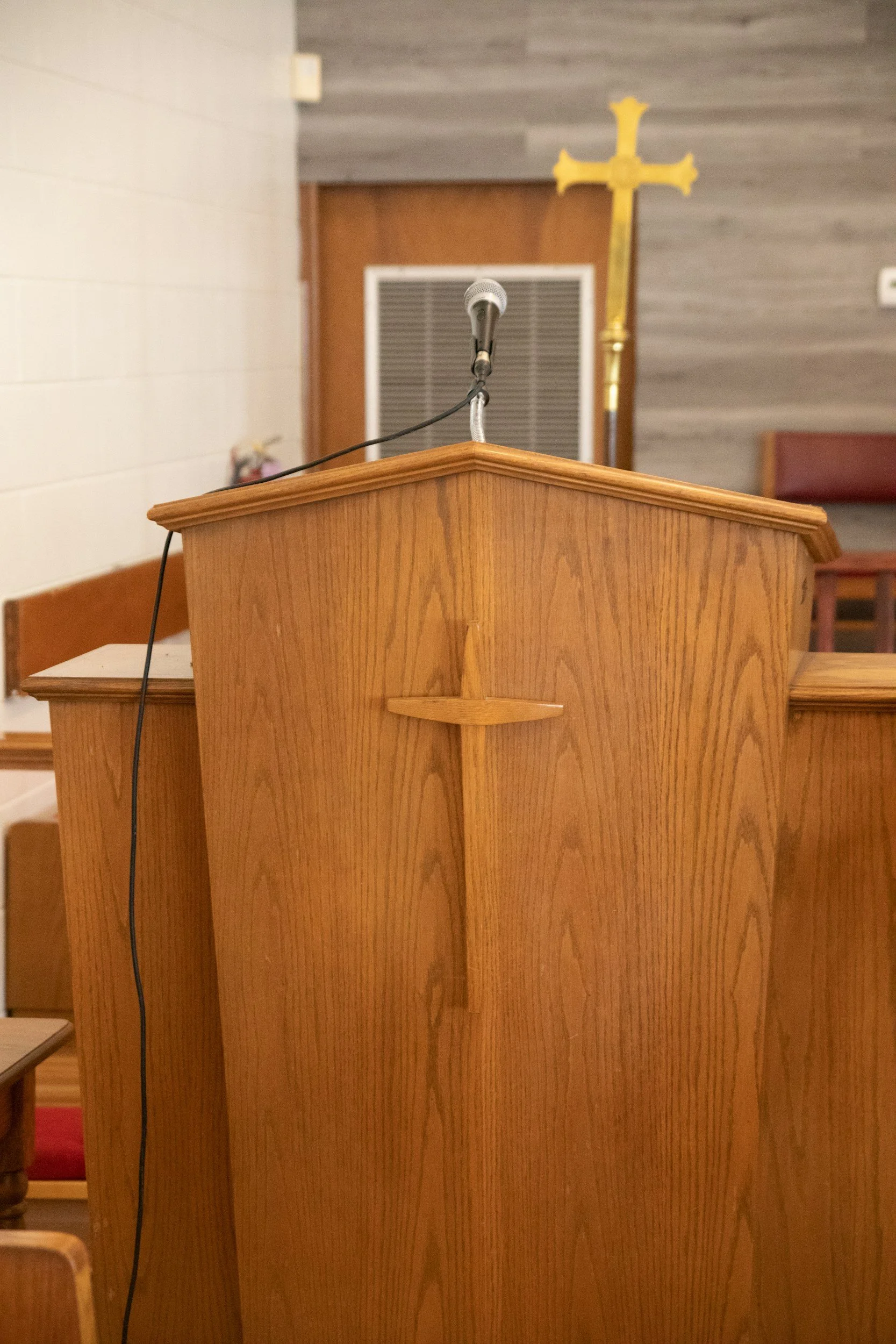The following is insight into how to sharpen your sermonizing skills while remaining faithful to the text. This introduces and describes the Fallen Condition Focus (FCF), Main Proposition of the Sermon (MPS), and Analytical Question (AQ).
Read MoreCatch all the sessions from the Pastors & Church Leaders Conference right here on ACV! Featuring Dr. David Santis, Rev. Harry Stoliker, Rev. Nathaniel Bickford, and the Restoration Network
Read MorePerseverance is in short supply when considering the number of pastors leaving vocational ministry. Two incredible examples come to mind when I think of what it means to press on: The Apostle Paul and Prophet Elijah. Picture Paul, undaunted by persecution, planting churches, raising up leaders, and boldly sharing the Gospel with the Gentiles.
Read MoreAfter much reflection and contemplation, I have spent the last several months engaging in what one might call "equine dialogues" with my donkeys, who have patiently borne the brunt of my musings. It may not astonish you that these creatures, sharing the moniker with me, have become my greatest confidants. Their silent counsel has been invaluable, guiding me to the clarity necessary for this urgent appeal to you, my colleagues: we need to mentor men in our church and make it one of our highest priorities, or else.
Read MoreDespite having believed the gospel for decades, over time I had begun to love a works-based self-righteousness that I had accumulated over years of faithful labor as a Christian, a church member, and a pastor. There are many tear stains on my copy of “Dangerous Calling,”, and some of the first of those tears came at the end of the very first chapter, where I wrote in the margin, “I compete for righteousness through theological and Biblical literacy and accuracy.”
Read MoreThe Advent Christian Church is not the only network or denomination struggling with finding called and qualified pastors. I remember sitting in a Church Revitalization class at Gordon-Conwell in South Hamilton when one of our Professors would bring in the ABC equivalent to Superintendents. Each one would provide some type of insight on church leadership or revitalization but would always take 10 minutes to pitch to eager seminary students why they should consider one of their many open churches in New England.
Read MoreSometimes the realization of some truth crashes over you all at once, like a wave breaking on the shore. Other times it mounts slowly, each piece gathered and joined together like a puzzle, until you finally see the picture…
Read MoreLet’s talk about making assumptions, and why that’s bad. Especially concerning the people sitting around you in the church pews.
Read MoreA Case for Biblical Egalitarianism: Part Two
Read MoreEgalitarianism. Otherwise known as - being in support of women in ministry and women holding positions of spiritual authority.
Read More“Why is there so much inconsistency within the Advent Christian denomination when it comes to the ordination of women?”
This question came to mind recently while watching a live podcast episode of Bible Banter that had Dr. Mark Woolfington on as a guest for the topic of discussion: Ordination Standards.
The broad discussion was centered around what ordination standards are in place currently, what should change, and what is needed in ordination standards for Advent Christians. As I was listening and watching, I made a comment about the need for consistency in ordination standards, which led to more discussion on the need for a commonly identified theological foundation in order to build more consistent ordination standards.
Thinking about the inconsistent ordination standards, methods, processes, and practices got me thinking…
Read More“Are these practical ministry courses really necessary?”
This was the question that I asked throughout college and seminary. In college, I was a Biblical Studies major, and I was able to get out of preaching classes since I was not a Pastoral Ministries major. I didn’t have any practical ministry courses in college, but that was a different story in seminary. When I got to Gordon-Conwell Theological Seminary, I could not get out of the three required preaching classes, the required “mentored ministry” classes/credits (I had to be actively involved in ministry in some way, with a mentor to supervise me), and the practical ministry courses.
Needless to say, in the beginning I was upset.
Read More· I am weak, but He is strong. Camp is exhausting, but God never sleeps.
· Campmeetings are sweet and wonderful and used by the Lord in unique ways, yet are no substitute for local churches through which God is carrying His mission forward in this world….
Read MoreIf getting out of the way is of first importance to remove friction and let God’s church burst forth, our main job thereafter becomes about either speeding it up, slowing it down (for good reason), or changing its direction.
Read MoreI have recently transitioned to a new ministry. In so doing, I have taken some time for reflection. After spending about four years in church ministry and eight years in the United States Army, I’d like to share with you some reflections on what I believe to be transferable leadership principles that guided me while serving in the world’s premiere fighting force. I could have made the list twice as long, there are things that are important that have been left out. However, these ten could help you as a leader of God’s people (I hope). Some you will see echo biblical principles, others are simply anecdotal and come purely from my experiences.
As I’ve concluded nine years in pastoral ministry and transitioned to a new season of ministry at the Berkshire Institute for Christian Studies I’ve taken some time to reflect on my experience as a shepherd of God’s flock – the ups, the downs, and the lessons I’ve learned along the way. I’m not at all claiming to have enlightened reflections, superior wisdom, or the keys to ministry success – and it didn’t take me nine years to figure that out. Nevertheless, by God’s grace and mostly through error, I have learned a lot. So I humbly offer these reflections as an expression of my gratitude for God’s sustaining grace and for the seemingly limitless patience of my Faith Church family.
Read Morein part 2 we zoom in to examine one major culprit in ministry fragmentation and how to solve it
Read MoreAt the 2017 ERA annual meeting, President Steve Brown of BICS presented the idea that the major barrier to unity within the Advent Christians is “theological fragmentation.” The major proposed solution, assuming one accepts the premise, was a call for a hermeneutical reformation (a la Kaiser as exemplar) to reinvigorate and reestablish basic, core, essential principles of interpretation in hopes of gaining unity of mind together.
Read More



















